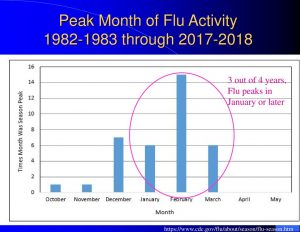Flu And The Cardiac Consequences

Flu resulting in Cardiomyopathy/ CAD exacerbation
Influenza has considerable burden on public health funds. The complications of influenza can be devastating.
- Most people exposed to the multiple viruses that can cause a cardiomyopathy experience only mild flu-like symptoms before the immune system quashes the intruder.
- It is not even uncommon for that virus to attack the heart. If electrocardiograms were done after a broad community outbreak of a common viral illness, many would show abnormalities.
- A fraction of these people will experience an exaggerated immune system response that inflames and weakens the heart muscle.
- An increasing number of epidemiologic studies have concluded that a temporal association exists between acute viral illnesses and myocardial infarction. Viral illnesses such as influenzacan cause or exacerbate coronary atherosclerosis by activating inflammatory pathways.
- The disease most often strikes younger, healthy people who do not have other cardiac problems. Less than half even remember having the original viral illness.
Symptoms of viral cardiomyopathy/ Discovering the problem
During the infection, you may (but not always) have head and body aches, joint pain, a fever, sore throat, or diarrhea. Later, you may develop:
- Irregular heart rhythms
- Fatigue
- Dizziness or fainting
- Swelling of the feet, ankles or hands
- Sharp chest pain, worse with breathing
- Chest x-ray shows fluid in the lungs or an enlarged heart
- Subsequent echocardiogram reveals compromised pumping capacity of the heart
- The next stop will be the cardiologist’s/doctors office or possibly even the hospital if the condition is emergent..
Restoring heart function
- Therapy revolves around reducing fluid buildup and restoring the heart’s pumping ability.
- The body’s immune system might clear the virus on its own. With current therapy, 40% to 50% of people with new-onset viral cardiomyopathy will recover their earlier level of heart function.
- Another 30% will have a persistent cardiomyopathy, meaning the heart doesn’t completely get back to normal but there is some improvement
- 20% will have a progression of their disease over the next months to years.
- The two strongest factors predicting a full recovery are the duration of the symptoms and the degree of heart enlargement that has already taken place by the time treatment begins.
- Because a small number of people will have a return bout of the disease a few years down the road, most heart failure specialists recommend that people continue to take medications such as ACE inhibitors and beta blockers that support heart function even after they recover.
- The best steps you can take are to follow routine hygiene measures to avoid the spread of germs during the cold season, and see your doctor promptly if you notice shortness of breath, lower-body swelling, or other telltale symptoms.
Peak Month of Flu Activity
1982-1983 through 2017-2018 (CDC)

What’s the connection between flu and cardiovascular problems? “When you get the flu, your body mounts an impressive immune response, which causes a lot of inflammation. As a result, the plaque inside your blood vessels can become unstable, which can lead to blockage and a possible heart attack or stroke,” says study leader
Jacob Udell, MD, a cardiologist at Women’s College Hospital in Toronto and a clinician-scientist at the University of Toronto.
